On-Demand Outsourcing BPO Services for Healthcare Providers With 24/7 Coverage!
Save up to 70% on staffing costs!
Browse Specialty Staffing Services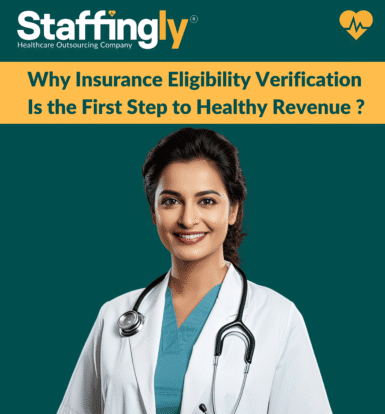
Why Insurance Eligibility Verification Is the First Step to Healthy Revenue ?
Ask any clinic why revenue slips through the cracks, and they’ll usually blame denied claims or coding errors. But the truth is, most of those problems start much earlier at the point of insurance eligibility verification. On paper, it’s simple: confirm coverage before a visit. In reality, skipped or rushed eligibility checks cause denials, delayed payments, angry patients, and a financial mess that could have been avoided. 💬 “We had thousands in claims denied just because coverage wasn’t verified upfront.”
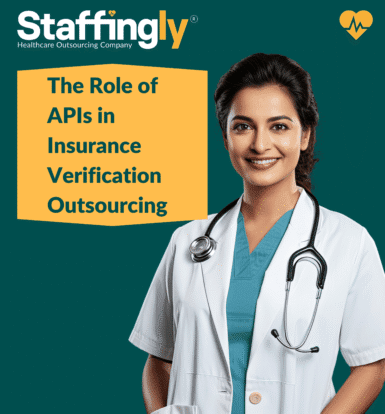
The Role of APIs in Insurance Verification Outsourcing
APIs turn insurance verification from a single EMR ping into a live, reliable workflow. Instead of stopping at active/inactive status, an API-first model pulls payer, network, and member data into a clean, service-specific benefits snapshot tied to the scheduled visit. It auto-rechecks when coverage changes, flags referral and network rules, surfaces COB order, and signals when authorization may be needed. Outsourced teams use these feeds to automate routine checks, escalate true exceptions, and push results straight into your EMR/PM—delivering accurate
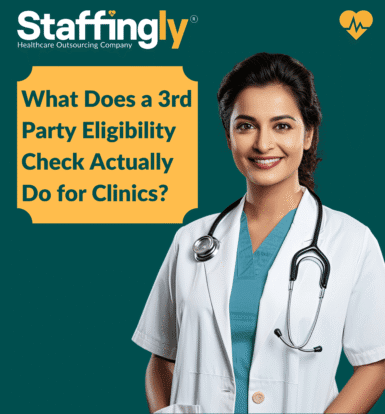
What Does a 3rd Party Eligibility Check Actually Do for Clinics?
Most clinics rely on EMR “real-time eligibility,” but that quick check often stops at active/inactive status and misses the details that cause denials—copays, deductibles, referrals, network status, carve-outs, and COB. A third-party eligibility check goes deeper by combining HIPAA 270/271 data with payer-portal/API lookups and human follow-ups to produce a clear, service-specific benefits snapshot (imaging, therapy, telehealth). Verifying these details before the visit—ideally at T-72 and T-24 with same-day spot checks—yields accurate patient-responsibility estimates, prevents “not eligible on DOS” surprises,
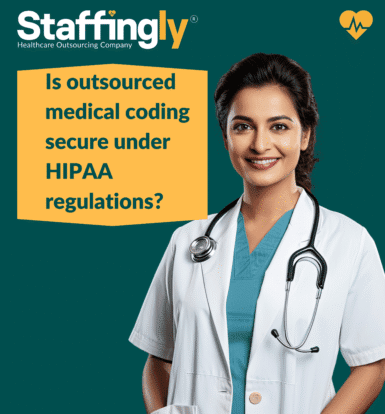
Is outsourced medical coding secure under HIPAA regulations?
Medical coding is the backbone of healthcare billing, translating patient care into standardized codes for insurance claims. Outsourcing this critical task can save clinics time and money, but it raises a pressing question: Is outsourced medical coding secure under the Health Insurance Portability and Accountability Act (HIPAA)? 💬 “We wanted to outsource coding to cut costs, but we were worried about patient data security.” The answer is yes outsourced medical coding can be secure under HIPAA, provided clinics partner with
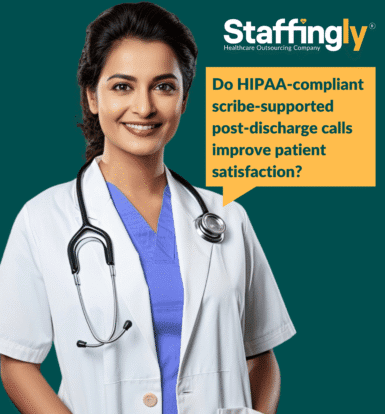
Do HIPAA-compliant scribe-supported post-discharge calls improve patient satisfaction?
After a hospital stay or clinic visit, patients often feel lost, unsure about follow-up care or instructions. Post-discharge calls are a critical touchpoint to bridge this gap, but managing them securely and effectively is a challenge. Can HIPAA-compliant scribes, trained to handle these calls, boost patient satisfaction while keeping data safe? 💬 “I left the hospital confused about my meds, and no one followed up until days later—it felt like they didn’t care.” The answer is yes—scribe-supported post-discharge calls, when
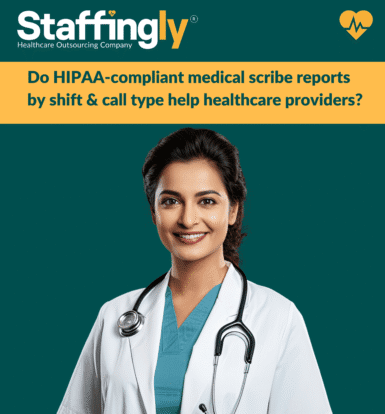
Do HIPAA-compliant medical scribe reports by shift & call type help healthcare providers?
Medical scribes, whether in-house or outsourced, are critical for streamlining documentation and allowing providers to focus on patient care. However, their access to Electronic Medical Records (EMRs) and Protected Health Information (PHI) raises a critical question: How can clinics ensure scribe workflows comply with the Health Insurance Portability and Accountability Act (HIPAA)? 💬 “We rely on scribes to keep our EMRs updated, but we can’t risk a HIPAA violation.” By implementing strict protocols, leveraging secure technology, and partnering with compliant
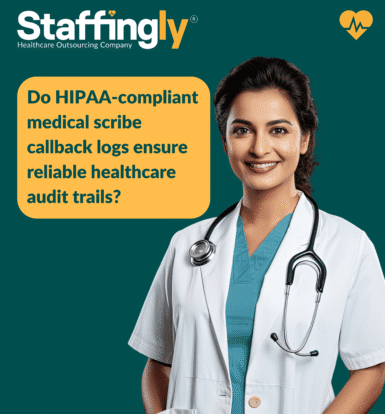
Do HIPAA-compliant medical scribe callback logs ensure reliable healthcare audit trails?
Medical scribes play a vital role in documenting patient interactions, including callbacks for follow-ups or clarifications, but their work must withstand scrutiny during healthcare audits. With the Health Insurance Portability and Accountability Act (HIPAA) setting strict standards for data security, can HIPAA-compliant scribe callback logs provide reliable audit trails? 💬 “We got audited last year, and our scribe logs saved us—they showed exactly who accessed what and when.” The answer is yes HIPAA-compliant scribe callback logs, when properly implemented, ensure
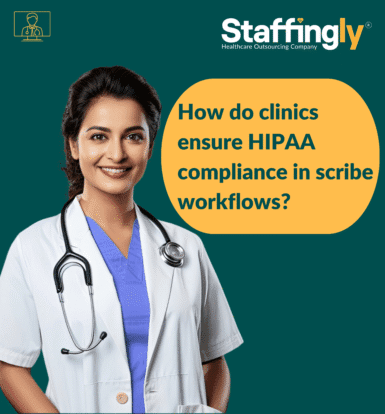
How do clinics ensure HIPAA compliance in scribe workflows?
Medical scribes play a vital role in healthcare by documenting patient encounters, updating EMRs, and assisting with coding. This helps providers focus on patient care. But because scribes work directly with Protected Health Information (PHI), their workflows must align with the Health Insurance Portability and Accountability Act (HIPAA). Without strict safeguards, a single mistake in handling PHI could lead to breaches, fines, and loss of patient trust. Key Takeaways HIPAA ensures scribes access only the minimum necessary PHI. Secure systems,
 Book a Demo to Build Your Team Today!
Book a Demo to Build Your Team Today!


 Read Case Studies
Read Case Studies 



 Virtual Medical Assistants
Virtual Medical Assistants



